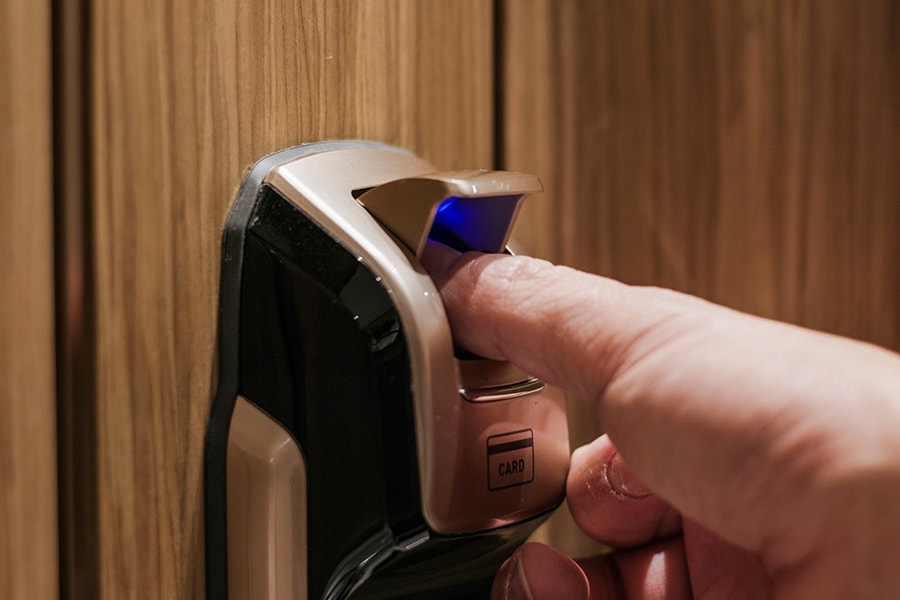
Facial recognition, virtual reality, and cryptocurrency: How the hotel experience is changing
After nearly two years of disruptions due to the pandemic, the hotel industry is going all-in on new technology in the hopes of offering a more customized experience for travellers
 In 2022, we won't be opening hotel room doors with a plastic key card but rather our fingerprints.
In 2022, we won't be opening hotel room doors with a plastic key card but rather our fingerprints.
Image: WAYHOME studio / Shutterstock
With the aim of making guests more comfortable during their stays and offering them peace of mind on the hygiene level through contactless exchanges, after nearly two years of disruptions due to the pandemic, the hotel industry is going all in on new technology in the hopes of offering a more customized experience for travelers. For future vacations, you should expect facial recognition, virtual reality, check-in via smartphone and payment by cryptocurrency to all be part of your hotel stay.




